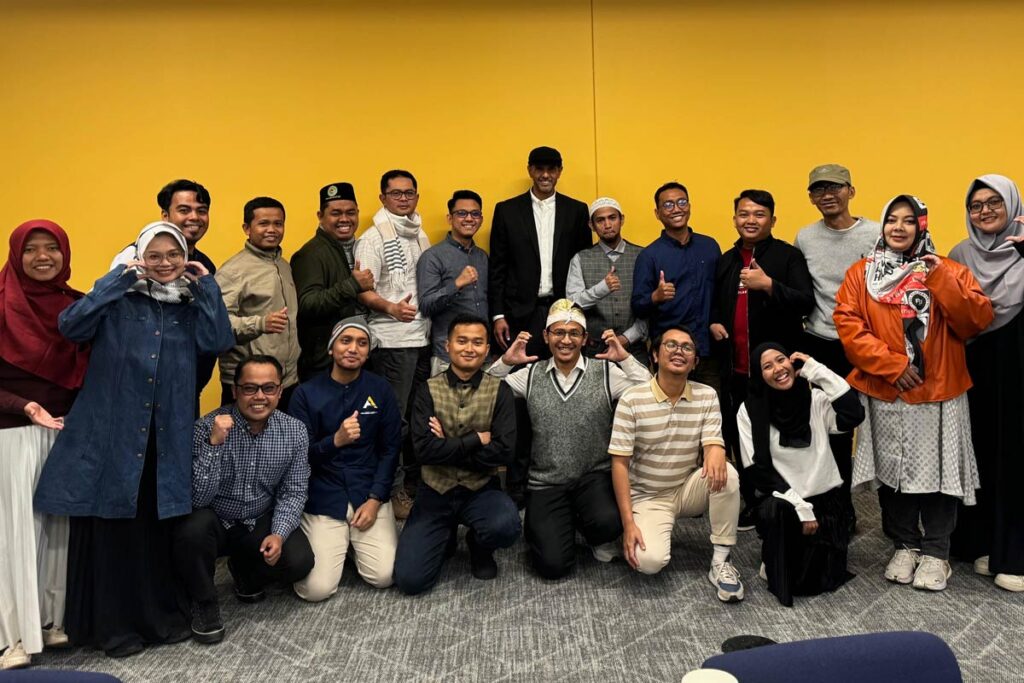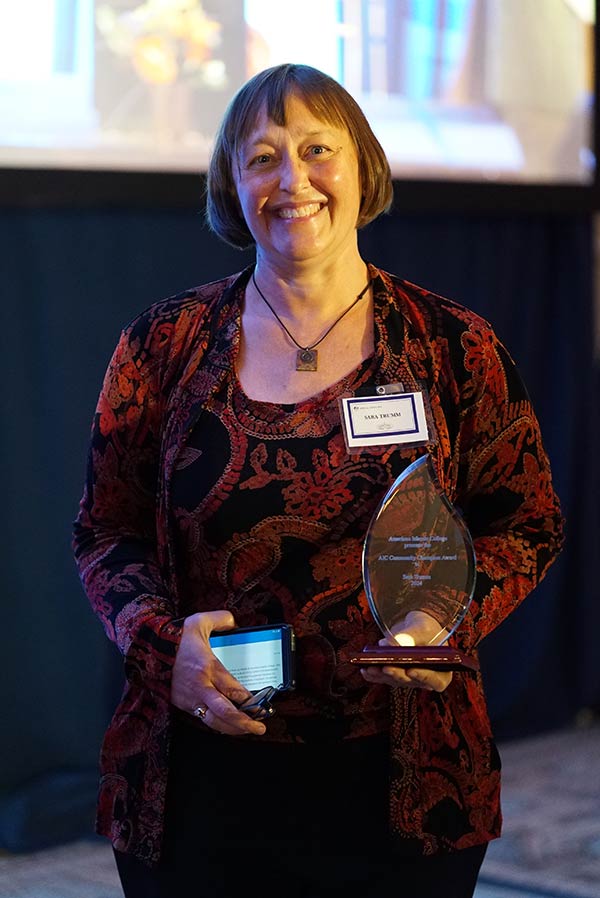Building Bridges: Lessons from the Indonesian Delegation’s Visit to LSTC

In the fall of 2024, the Lutheran School of Theology at Chicago hosted a delegation of 20 educators, scholars, and leaders from Indonesia as part of a certificate program on “Religion, Peace, and Encounter.” The two-month, interfaith program, an initiative of the American Islamic College’s (AIC) newly established Hassan Institute for Interfaith Council, proved to be a masterclass in the power of cross-cultural engagement, mutual respect, and curiosity.
LSTC’s involvement in the certificate program is a result of the AIC’s newly established Hassan Institute for Interfaith Encounter. When Romana Manzoor, the AIC’s Associate Vice President for Accreditation & Institutional Research and Effectiveness and Director of the Hassan Institute, learned that AIC received a grant to create the certificate program, she pitched the collaboration to Sara Trumm, Director of A Center of Christian-Muslim Engagement for Peace and Justice at LSTC. It was an easy sell.
“Engagement and Encounter are key words for us,” said Trumm, “We’re always looking to bring Muslims and Christians together for learning and relationship-building.”
The result was a program offering academic coursework and experiential learning opportunities that included site visits to religious, academic, and civic institutions. Together, the institutions facilitated dialogue on topics like interreligious understanding.
Selected from over 200 applicants by Indonesia’s Ministry of Religious Affairs, the visiting delegation was comprised of leaders in “pesantren”—Islamic boarding schools that combine religious and secular education with community development. Many were educators, while others were scholars, journalists, and community leaders. Their shared goal was to expand their work in interfaith dialogue and peacebuilding.
During their stay, the delegation engaged in numerous activities designed to foster learning and exchange. The on-campus curriculum included faculty-led academic sessions like Dr. Mark Swanson’s lesson on the Bible and Quran and interreligious scholarship. Site visit provided a means of exploring practical applications of interfaith collaboration and included such destinations as University of Chicago, Interfaith America, the MECCA Center, the Bahai Temple, the Muslim Civic Coalition, Darussalaam, and the Turkish American Society.
The delegation’s visit coincided with key cultural and historical moments, including Halloween, Thanksgiving, and the beginning of the holiday season. Trumm said that sharing these events deepened the exchange.
“Experiencing the holidays with the delegation added significance for me in many ways,” she said. “It tested my knowledge and comfort in explaining the complicated historical development of traditions in Christianity, as well my ability to compare and contrast the religious and secular aspects of the various holidays.”
The delegation attended a panel on the moral responsibilities of faith leaders regarding issues in Palestine and Israel, as well as discussions on racism and social justice. These conversations, while challenging, proved beneficial to both communities, and the hard work was counterbalanced with plenty of fun, including a “culture night” where participants shared skits and songs.

“We tackled tough topics, but we also laughed, sang, and danced together,” Trumm noted, “There was a lot of laughter. I was really surprised at how relaxed and comfortable we all were with one another from the start.”
For LSTC students, the shared experience provided an opportunity for connection and meaningful engagement. As MDiv student Erika Boss noted, “Food and celebration will inevitably bring people together.” In addition to her certificate, Boss completed the program with new friendships and global connections. She hopes to one day travel to Indonesia to visit members of the delegation and credits the program for broadening her cultural horizons.
“There are places around the world that Americans could learn a lot from” Boss concluded. “If more people could experience the pride of other groups singing their own national anthem, sharing their food, and telling stories about their home, then maybe we could see each other as more human, as equally human as we see ourselves.”
The visit proved to be an exchange of knowledge and experiences. While LSTC community members offered insights into interfaith engagement from our Christian majority context, the Indonesian delegation shared their experiences with religious moderation and madrasa education.
“Their work in pesantren—teaching peacebuilding, conflict mediation, and interfaith dialogue—is something we can all learn from,” Trumm said.
LSTC student Venesia Hutabarat (a Christian from Indonesia), participated in the Indonesian Delegation’s activities and agreed with Trumm.
“I learned many lessons [from this experience], especially in [learning how to engage] interfaith cooperation to improve small things in our country such as environmental problems, interfaith issues, [and] theological issues,” said Hutabarat. “I hope that all of us (Indonesian delegates and especially Lutheran churches) are always open to learning new things and working towards understand[ing] each other.”
For LSTC Master of Theology student Sweetry Noverlindra, who also hails from Indonesia, the opportunity to engage with like-minded students from her home country provided opportunity for meaningful discussion about the future.
“I am very grateful for this program because it gave me the opportunity to meet pesantren leaders from all over Indonesia,” Noverlindra said. “I found that we share the same dream of creating a peaceful Indonesia, especially in terms of interfaith relations… Therefore, [we hold] a significant responsibility as religious leaders and teachers in Indonesia to equip our congregations and students to bring about peace in the world, especially among different faiths.”
Coordinating schedules, navigating visa requirements, and addressing language and cultural differences presented logistical challenges, yet the dedication of everyone involved turned these obstacles into exercises in flexibility and opportunities for deeper connection. As LSTC students reached out across the hallways of student housing to welcome their neighbors from Indonesia, friendship blossomed. As Boss noted, “the act of showing up goes a long way.” The new relationships demonstrated how interfaith engagement is not just about dialogue, but building a more just and peaceful world.
As LSTC continues its mission of preparing leaders for ministry in a global context, the Indonesian delegation’s visit serves as a model for future initiatives. LSTC plans to continue this program and others with the American Islamic College in the coming years as a means of reminding us that through encounter and engagement, we gain understanding, empathy, and hope. For LSTC and its alumni, it’s a call to continue building bridges in a divided world.